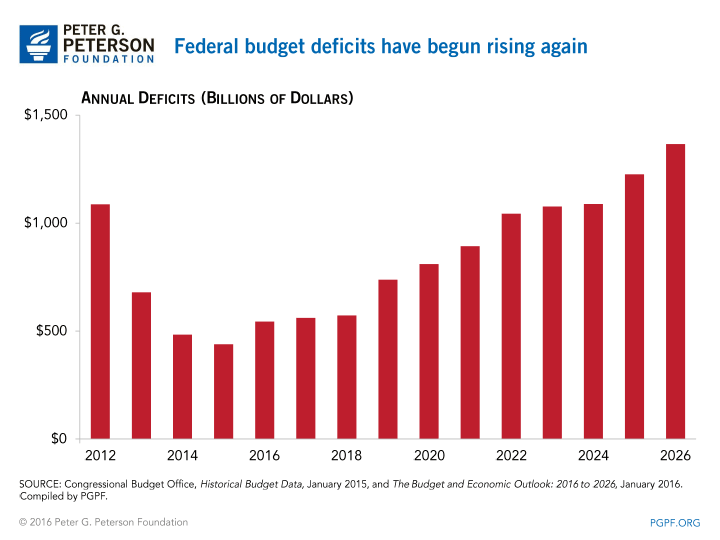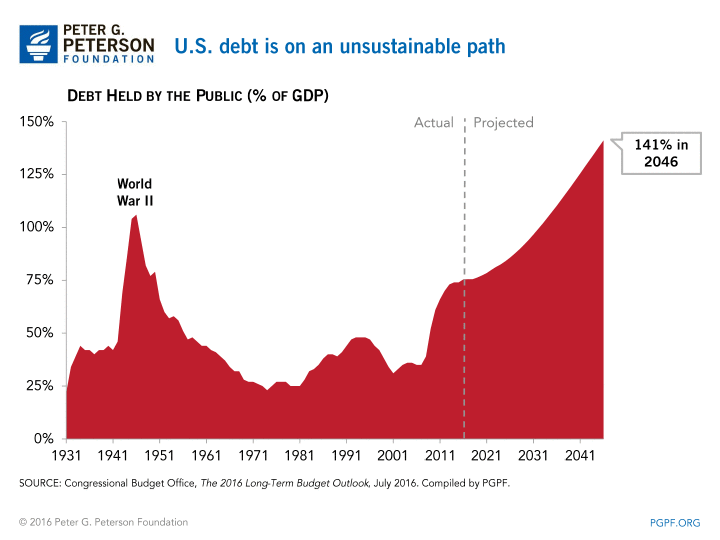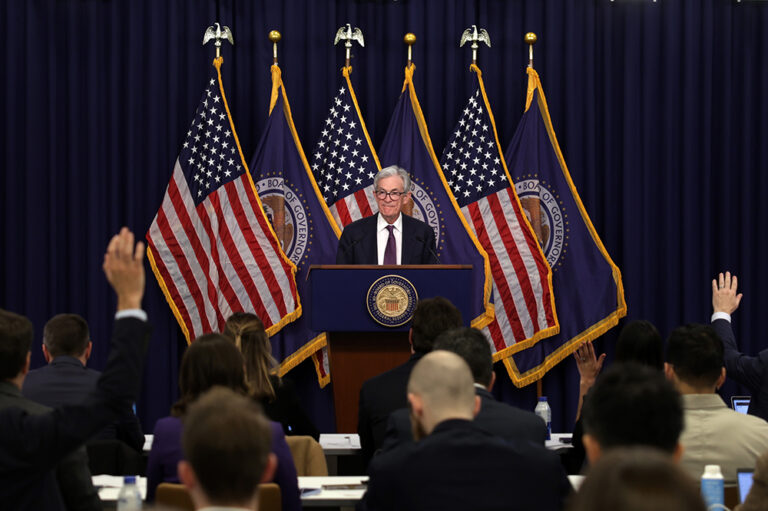With the 2016 fiscal year nearly over, the nonpartisan Congressional Budget Office (CBO) updated its budget projections this week, confirming that for the first year since 2009, deficits as a share of GDP are on the rise again — up 35 percent from $438 billion in 2015 to $590 billion in 2016.
Here are three key CBO projections that our Research team highlighted in their analysis of the report:
1. The budget deficit will reach $590 billion this year, growing as a share of GDP for the first time since 2009 and increasing by $152 billion since 2015.

2. Over the next 10 years, debt will continue to climb significantly, reaching 86 percent of GDP in 2026 — more than double the 50-year historic average of 39 percent.

3. Over the next 10 years, net interest costs will significantly increase, totaling $4.8 trillion.
In its most recent 30-year projections, released in July, CBO reported that our federal debt is on an unprecedented and unsustainable path, and could climb to 141 percent of GDP by 2046. In its new report, CBO warns that increasing long-term debt could significantly damage the economy if policymakers fail to address our nation’s fiscal imbalances.
“As the election season continues, our fiscal situation demands attention — because it’s our economic future that’s at stake,” Michael A. Peterson, President and CEO of the Peter G. Peterson Foundation, said in a statement. “The 2016 campaign is a perfect opportunity for a serious conversation between voters and candidates about the many solutions available to put our nation on a more sustainable and prosperous path.”
Image credit: Photo by Vitaliy Pozdeyev/Getty Images/iStockphoto
Further Reading
What’s the Difference Between the Trade Deficit and Budget Deficit?
The terms “budget deficit” and “trade deficit” can be conflated, but they are distinct measurements of important fiscal and economic concepts.
The Federal Government Has Borrowed Trillions. Who Owns All that Debt?
Most federal debt is owed to domestic holders, but foreign ownership is much higher now than it was about 50 years ago.
The Fed Reduced the Short-Term Rate Again, but Interest Costs Remain High
High interest rates on U.S. Treasury securities increase the federal government’s borrowing costs.


